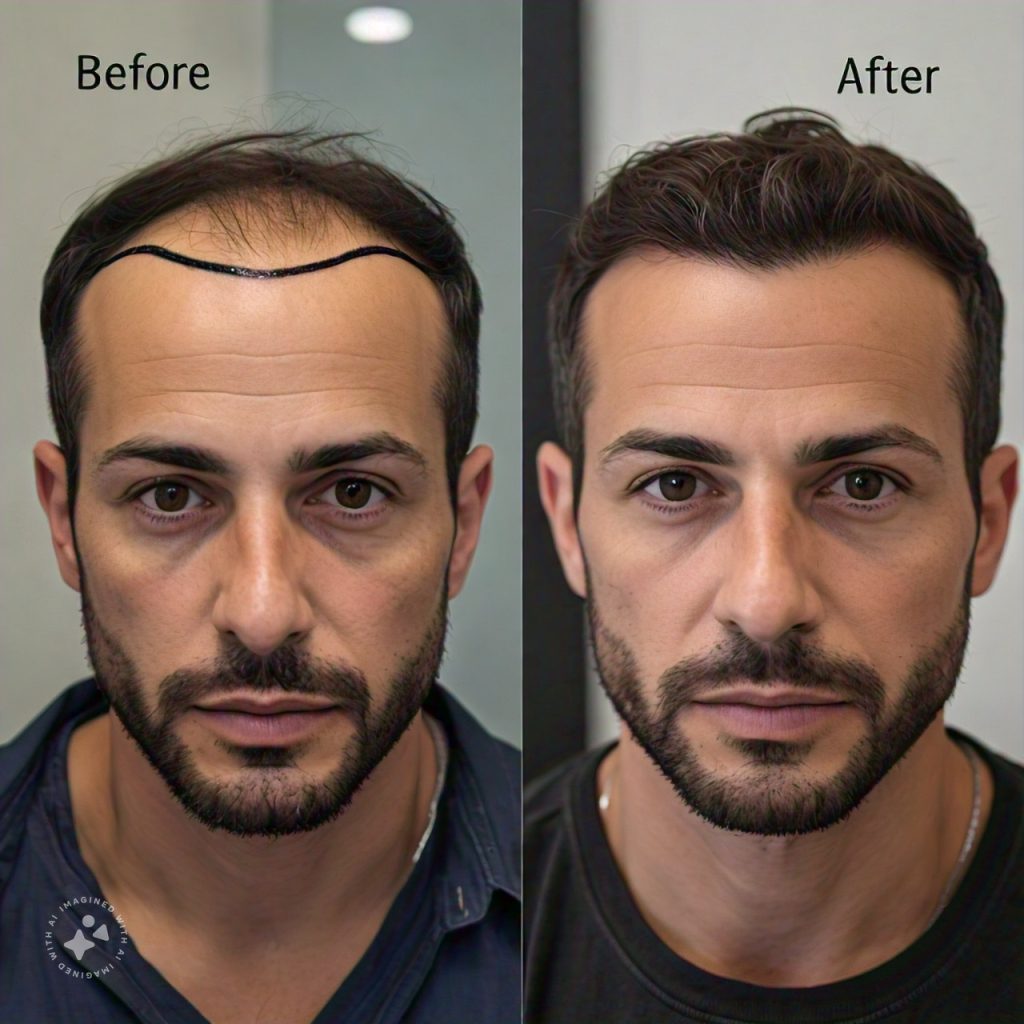Hair transplantation is a popular and effective solution for hair loss, providing individuals with renewed confidence and a natural-looking hairline. While the procedure itself is critical, the role of diet and lifestyle in achieving optimal results is often underestimated. Proper nutrition and healthy habits can significantly influence the success of a Hair Transplant ensuring better graft survival and long-term results.

The Role of Diet in Hair Transplant Success
The foundation of healthy hair lies in proper nutrition. Hair is made up of a protein called keratin, and its growth depends on a consistent supply of nutrients. Post-transplant, the body requires additional support to heal and promote hair growth. Here’s how diet impacts the process:
1. Protein: The Building Block of Hair
Protein is essential for hair repair and growth. Foods like lean meats, eggs, fish, beans, and nuts provide the necessary amino acids to strengthen transplanted hair follicles. A protein-deficient diet can lead to weak hair and slower healing.
2. Iron and Zinc: Vital Minerals
Iron helps in delivering oxygen to the hair follicles, while zinc plays a crucial role in tissue repair and follicle function. Including leafy greens, red meat, seeds, and seafood in your diet can ensure you get these essential minerals.
3. Vitamins for Hair Health
- Vitamin A: Promotes the production of sebum, which keeps the scalp healthy. Found in carrots, sweet potatoes, and spinach.
- Vitamin C: Boosts collagen production, aiding in skin repair and strengthening hair roots. Citrus fruits, bell peppers, and strawberries are excellent sources.
- Vitamin E: Enhances scalp circulation, which is vital for transplanted hair. Found in nuts, seeds, and vegetable oils.
4. Omega-3 Fatty Acids
Omega-3s are anti-inflammatory and can support scalp health, creating an optimal environment for hair growth. Fatty fish, flaxseeds, and walnuts are great sources.
The Impact of Lifestyle on Hair Transplant Results
Lifestyle habits are equally important in ensuring the success of a hair transplant. Certain behaviors can either promote recovery and hair growth or hinder the process.
1. Smoking
Smoking negatively affects blood circulation, reducing oxygen delivery to the scalp. This can delay healing and impact the survival of transplanted follicles. Quitting smoking before and after the procedure is strongly recommended.
2. Alcohol Consumption
Excessive alcohol can dehydrate the body and impair wound healing. Avoid alcohol in the weeks following the transplant to support recovery.
3. Stress Management
Chronic stress can lead to hair loss and impede the healing process. Stress management techniques like meditation, yoga, or even simple deep-breathing exercises can make a significant difference.
4. Regular Exercise
Moderate exercise improves blood circulation, delivering nutrients and oxygen to the scalp. However, intense physical activity should be avoided immediately after the procedure to prevent graft displacement.
5. Scalp Hygiene and Care
Maintaining a clean scalp is crucial to prevent infections. Follow your surgeon’s post-transplant care instructions, including using recommended shampoos and avoiding harsh chemicals.
Hydration: The Unsung Hero
Staying hydrated is essential for overall health and optimal hair growth. Water aids in the transport of nutrients to hair follicles and helps in detoxifying the body. Aim for at least 8-10 glasses of water daily, especially during the recovery phase.
The Long-Term Benefits of a Healthy Diet and Lifestyle
Adopting a nutrient-rich diet and a healthy lifestyle not only boosts the success of a hair transplant but also enhances overall hair quality. Strong, vibrant hair is a reflection of a well-nourished body. Moreover, these habits help prevent future hair loss, maximizing the long-term benefits of the transplant.
Conclusion
While a hair transplant is a remarkable solution for restoring lost hair, its success is not solely dependent on the procedure. Diet and lifestyle play pivotal roles in the recovery and growth of transplanted hair. A balanced diet rich in essential nutrients, combined with healthy lifestyle choices, ensures optimal healing, graft survival, and long-lasting results. By committing to these changes, individuals can fully enjoy the benefits of their hair transplant and embrace a lifetime of confidence.
We are located in Brighton and Hove, proudly serves the nearby areas. Capital Hair Restoration – Hair Transplant is a leading provider of surgical and non-surgical hair loss solutions for men and women throughout Brighton, the UK, and Ireland. Browse our site ( Brighton Hair Transplant ) or call us ( 020 8088 2393 ) for a chat.

